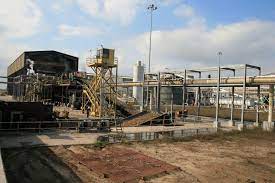A US$700 million renewable diesel refinery plant in Caldwell Parish, Louisiana was announced to begin construction by the governor of Louisiana. Governor Edwards along with the CEO of Strategic Biofuels LLC, Paul Schubert, have stated that Louisiana Green Fuels, a subsidiary of Strategic Biofuels LLC will be constructed on a 171- acre site in Columbia and will produce up to 121 million liters of renewable fuels annually. Louisiana Green Fuels will do this through established refinery processes with wood waste as the feedstock. It’s completing feasibility and financing phases for the project with the anticipation of a final investment decision by late 2022.
Also Read: Construction of Africa’s first hybrid renewable power plant commence
Louisiana Green Fuels will create 76 new jobs with an average salary of US$68,000. Louisiana Economic Development (LED) estimated that the project will result in an additional 412 new indirect jobs; totaling almost 500 new jobs in Caldwell Parish. The building phase is planned to take at least 30 months and will generate another 450 construction jobs. The United States’ Energy Information Administration defines renewable diesel as biomass-based diesel fuel. It is also referred to as green diesel and is chemically the same as petroleum diesel fuel and can be used in place of petroleum-based diesel. It is usually produced from cellulosic biomass materials such as crop residues, wood, and sawdust.
“Louisiana Green Fuels is an example of how our state can merge traditional and emerging forms of energy in exciting ways to address climate change,” said Governor Edwards. “The company has engaged Justiss Oil of Jena to drill a sequestration test well that will confirm the integrity of carbon storage a mile below the earth’s surface. This project would boost our state’s forestry sector by harvesting timber byproducts in a sustainable fashion, and the refinery’s renewable diesel output would be accomplished in a carbon-negative fashion. That means this refinery would achieve better than net-zero emissions – it would actually remove more carbon from the environment than it produces.”

Leave a Reply